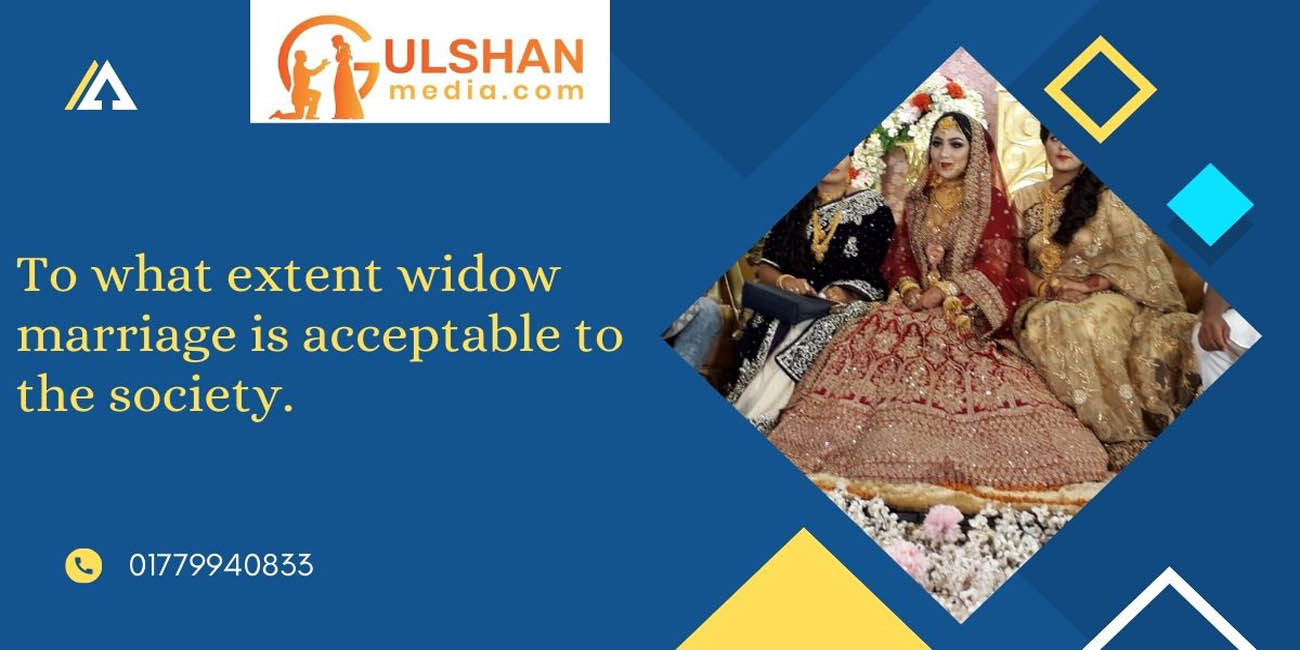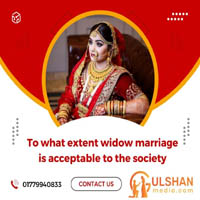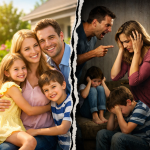To what extent widow marriage is acceptable to the society.
To what extent widow marriage is acceptable to the society.

To What Extent Widow Marriage is Acceptable to Society: A Cultural and Historical Perspective
The question of widow marriage has been a subject of debate and contention for centuries, shaped by cultural norms, religious beliefs, and societal expectations. While the acceptability of widow marriage varies across cultures and time periods, it remains a complex and sensitive issue that continues to evoke strong emotions and opinions.
Widow marriage, the union of a widow/widower with another person, has been a subject of societal contemplation across different cultures and eras. The acceptability of widow marriage has evolved over time, reflecting changing attitudes, beliefs, and social norms. While some societies have embraced it, others have exhibited varying degrees of reluctance or outright opposition. Examining the perspectives, historical contexts, and contemporary viewpoints can shed light on the extent to which widow marriage is deemed acceptable by society.
Historical Perspectives:
Throughout history, widowhood was often accompanied by stringent social norms and practices. In numerous ancient cultures, widows faced ostracism, isolation, or forced self-sacrifice upon their husband’s death. The practice of Sati in India, where widows self-immolated upon their husband’s funeral pyre, exemplifies extreme societal expectations and constraints.
In contrast, certain historical societies encouraged widow remarriage. Ancient Rome, for instance, allowed widows to remarry to ensure familial stability and address economic concerns. Similarly, some societies in ancient Greece and parts of Africa supported the remarriage of widows to safeguard their social standing and economic welfare.
Religious and Cultural Influences:
Religious beliefs and cultural norms significantly impact societal perceptions of widow marriage. In some cultures, religious scriptures or traditions advocate for or against widow remarriage. For instance, certain interpretations of Hindu scriptures initially supported Sati but later advocated for widow remarriage, recognizing it as essential for women’s well-being.
Conversely, in conservative interpretations of religious texts in various societies, widows might face social stigma or limitations in pursuing a second marriage. Such beliefs often intertwine with societal norms, influencing the acceptance of widow marriage.
Shifting Societal Attitudes:
As societies progress and modernize, attitudes towards widow marriage have undergone transformation. Education, advocacy, and gender equality movements have played pivotal roles in challenging traditional perceptions. Many societies now recognize the rights of widows to seek companionship and happiness beyond their first marriage.
The emphasis on individual rights, autonomy, and gender equality has led to increased acceptance of widow marriage in numerous parts of the world. Legal reforms, support from NGOs, and governmental initiatives promoting widows’ rights have contributed to changing societal perspectives.
Challenges and Resistance:
Despite progressive shifts, challenges persist in accepting widow marriage universally. Deeply ingrained cultural norms, stereotypes, and patriarchal structures hinder the full acceptance of widows seeking remarriage. Stigma, particularly in conservative or rural settings, might discourage widows from pursuing remarriage due to fear of social ostracism.
Moreover, economic disparities, lack of access to resources, and limited education can impede widows’ ability to exercise their right to remarry. In some cases, families or communities might oppose widow remarriage due to concerns about inheritance, property rights, or social status.
Historical Context and Cultural Variations
In many traditional societies, widow remarriage was discouraged or even prohibited, often due to patriarchal structures, concerns about lineage, and the preservation of property. Widows were often subjected to social stigma, economic hardship, and even physical abuse. This was particularly common in societies where women were largely dependent on men for their financial security and social status.
traditional African widow in mourning attire
In some cultures, widows were expected to practice a form of mourning that involved abstaining from remarriage and sexual activity. This practice, known as levirate marriage, was often enforced by law or religious tradition. In levirate marriage, the widow was obligated to marry the brother of her deceased husband, ensuring that the family lineage and property remained intact.
However, not all cultures viewed widow marriage with such negativity. In some societies, widows were encouraged to remarry, particularly if they had young children or limited economic means. Remarriage provided widows with a sense of security, companionship, and social acceptance.
Changing Attitudes and Modern Perspectives

Over time, attitudes towards widow marriage have gradually shifted in many parts of the world. This shift has been driven by factors such as increasing education, urbanization, and exposure to Western cultural norms. As women’s rights and social status have improved, so has their freedom to make choices about their personal lives, including the decision to remarry.
In many developed countries, widow marriage is now widely accepted and even encouraged. Laws have been passed to protect widows’ rights to property, inheritance, and remarriage. Societal attitudes have also evolved, with greater understanding and acceptance of widows’ desires to find companionship, love, and fulfillment after the death of their spouse.
modern Western widow in a contemporary wedding dress
However, even in modern societies, challenges and prejudices persist. Widows may still face social stigma, particularly in conservative communities or cultures with strong religious traditions. They may also encounter financial difficulties, especially if they lack education or job skills.
Contemporary Outlook and Progress:
In many contemporary societies, attitudes toward widow marriage have become more inclusive and accepting. Social campaigns, educational programs, and legal reforms have worked towards destigmatizing widowhood and promoting the rights of widows to pursue remarriage if they choose.
Support networks, counseling services, and community interventions aim to empower widows, providing them with emotional support and opportunities for remarriage if desired. Additionally, increased representation of widows in leadership roles and public advocacy has helped challenge societal prejudices.
The Role of Religion and Cultural Norms
Religious beliefs often play a significant role in shaping attitudes towards widow marriage. In some religions, widow remarriage is considered a sin or a violation of religious principles. This can make it difficult for widows to remarry, especially if they are devout followers of their faith.
Cultural norms also influence societal acceptance of widow marriage. In cultures that emphasize family lineage and social status, widow remarriage may be discouraged to protect the family’s reputation or property. Additionally, in cultures that place a high value on tradition and conformity, widows may face pressure to uphold societal expectations and avoid remarriage.
Addressing Challenges and Promoting Acceptance
To further promote acceptance of widow marriage, it is crucial to address the underlying challenges and prejudices that persist. This includes:
- Providing education and awareness-raising programs. Educating communities about the benefits and acceptability of widow marriage can help dispel misconceptions and promote positive attitudes.
- Empowering widows economically and socially. Providing widows with access to education, job training, and financial support can increase their independence and make them more empowered to make their own decisions about remarriage.
- Addressing religious and cultural barriers. Engaging with religious leaders and community elders can help foster understanding and acceptance of widow marriage within religious and cultural contexts.
- Enacting and enforcing supportive legislation. Laws that protect widows’ rights to property, inheritance, and remarriage can help create a more equitable and supportive environment for widows.
Conclusion
The journey towards greater acceptance of widow marriage is a complex and ongoing process. It requires a multifaceted approach that addresses cultural norms, religious beliefs, and societal attitudes. By promoting education, empowerment, and supportive legislation, we can create a world where widows are free to make choices about their lives without facing prejudice or discrimination.
Widow marriage is a deeply personal decision that should be made freely and without coercion. Every widow should have the right to choose whether or not to remarry, based on her own values, beliefs, and circumstances. By fostering greater understanding, acceptance, and support, we can empower widows to make their own choices about their futures and live fulfilling lives. The acceptability of widow marriage varies widely across different societies, influenced by historical, religious, cultural, and socioeconomic factors. While significant strides have been made in acknowledging widows’ rights and autonomy, challenges persist in achieving universal acceptance.
Efforts toward gender equality, education, legal reforms, and societal awareness are crucial in fostering a more inclusive and accepting environment for widows seeking remarriage. Embracing empathy, understanding, and supporting individual choices irrespective of marital status is fundamental in creating a society that respects and values the rights of widows to find companionship and happiness in remarriage, should they wish to pursue it.
“বিয়ে সংক্রান্ত যেকোনো তথ্য ,সেবা এবং পরামর্শ পেতে যোগাযোগ করুন গুলশান মিডিয়ার সাথে। ” কল করুন: 01779940833
Email : gulshanmedia2@gmail.com








